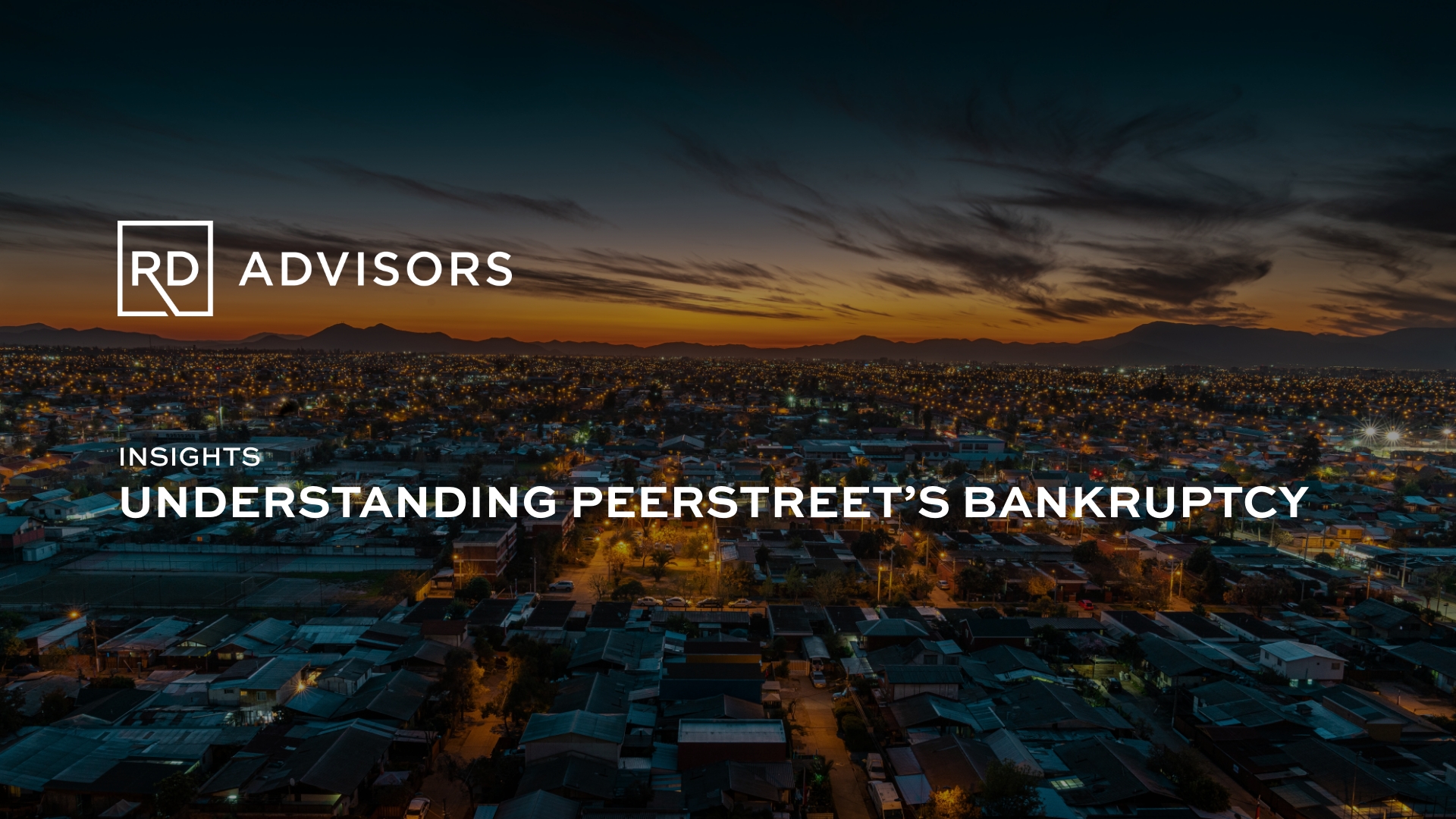For more information about real estate debt funds, see this primer.
PeerStreet’s bankruptcy is a tragedy for its investors. It’s important to note we’re not connected at all to them (nor were they a direct competitor), however we do follow firms within the real estate private credit industry and have been following the saga. We are lucky to have great in-house legal that looked into the situation and provided the overview below (obviously, this is just digesting publicly-available information and does not include any form of legal or financial advice – consult your attorneys on what your next steps should be):
Many investors believe that they held a participation in a specific secured loan and mortgage. According to Peerstreet’s filings, that is not true for all investors. While some investors bought loans directly, others invested directly at various levels of the capital structures in companies that held notes. For example, some investors actually held “mortgage dependent promissory notes.” “A mortgage dependent promissory note is a promissory note in which the investor receives a stated interest rate for a stated term that is dependent on payment of the underlying loan between PeerStreet and the borrower. [Accordingly, those] investors do not own the underlying property and their name is not on the property title or loan documents.” (https://www.peerstreet.com/content/disclosures)
The implication is that all the investors are creditors of PeerStreet entities and, if these entities filed for bankruptcy, they are tied up in the bankruptcy of PeerStreet regardless of the performance of the underlying note that they were invested (unless of course it was repaid more than 90 days prior to the bankruptcy filing). If you are one of these investors that did not outright buy a loan from PeerStreet, the following website gathers the bankruptcy filings, a searchable docket and includes information that will be important to you: https://cases.stretto.com/peerstreet.
For example, it contains the following information:
- List of entities that filed. If you received a note or equity in one of these entities, you now have a claim in a bankruptcy case and you are a “Creditor” as they define it.
- A notice that PeerStreet has a meeting of “Creditors” (you) on August 2, 2023 at 2 pm. Instructions on how to log in can be found on the site.
- A motion providing that PeerStreet will notify “retail creditors” (i.e., their customers like you) by e-mail – so check your email often and make sure PeerStreet has your correct information.
- An initial notice of the filing of the bankruptcy cases, which contains basic information, such as attorneys you can contact with questions. Obviously, these are not your attorneys, but they can still provide basic information.
Later in the case, there will be a deadline set to file a “proof of claim”. As a Creditor, that is what you have to do to receive any distribution that your class of creditors (creditors in a similar situation to you) will get. So it is important to make sure that is filed on your behalf. Depending on what and how you invested, there may be an agent or trustee to file that for you. But you should monitor that deadline and email notices you may get and you should make sure someone file this for you on time.
PeerStreet seems to have indicated that it will conduct an auction to sell substantially all of its assets. According to the website above, there is a hearing set on July 21, 2023 with respect to the procedures for that auction.
We will keep our eye out for updates and post more information here from time to time – but keep checking the website above and consult your attorneys for the steps you need to take.
Feel free to follow us to stay informed.
